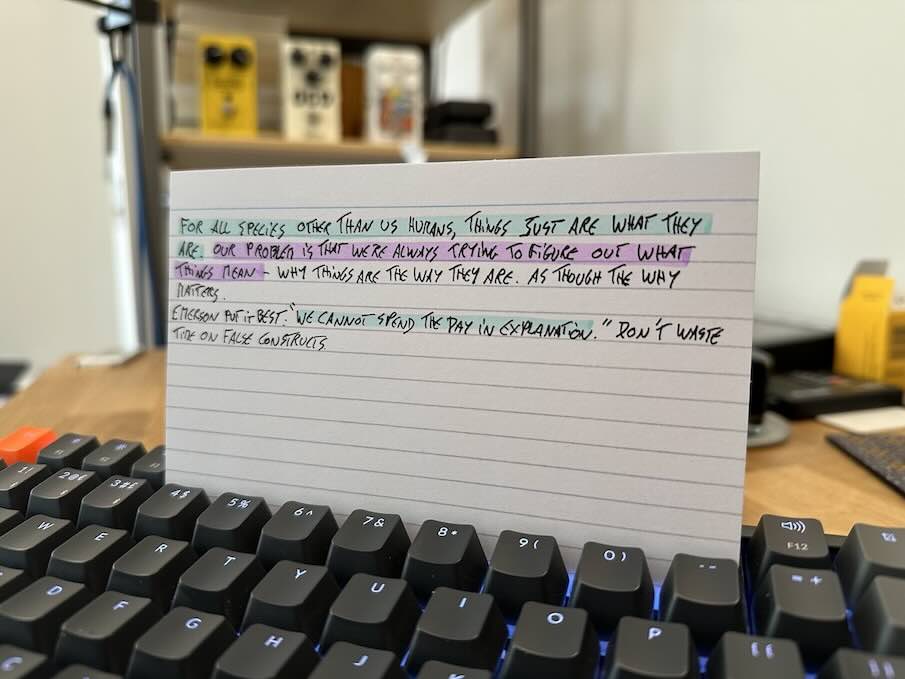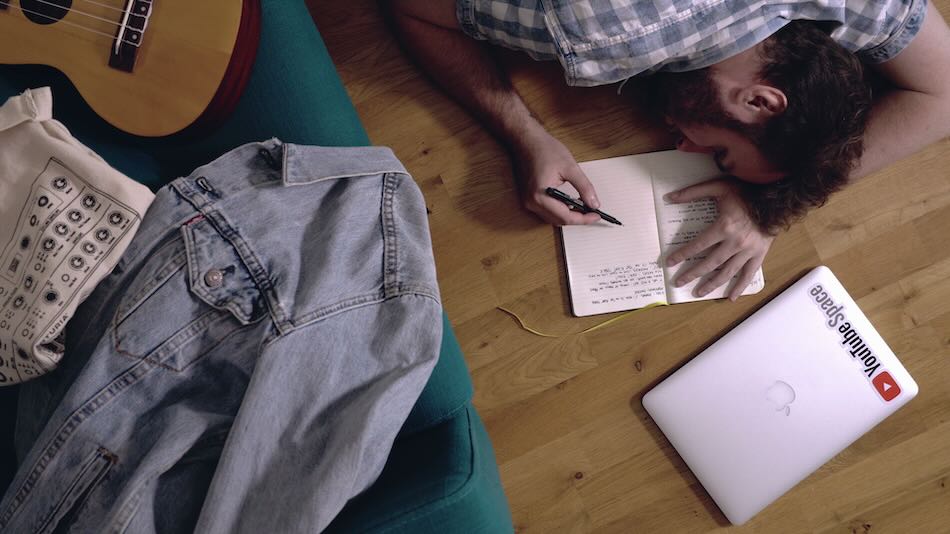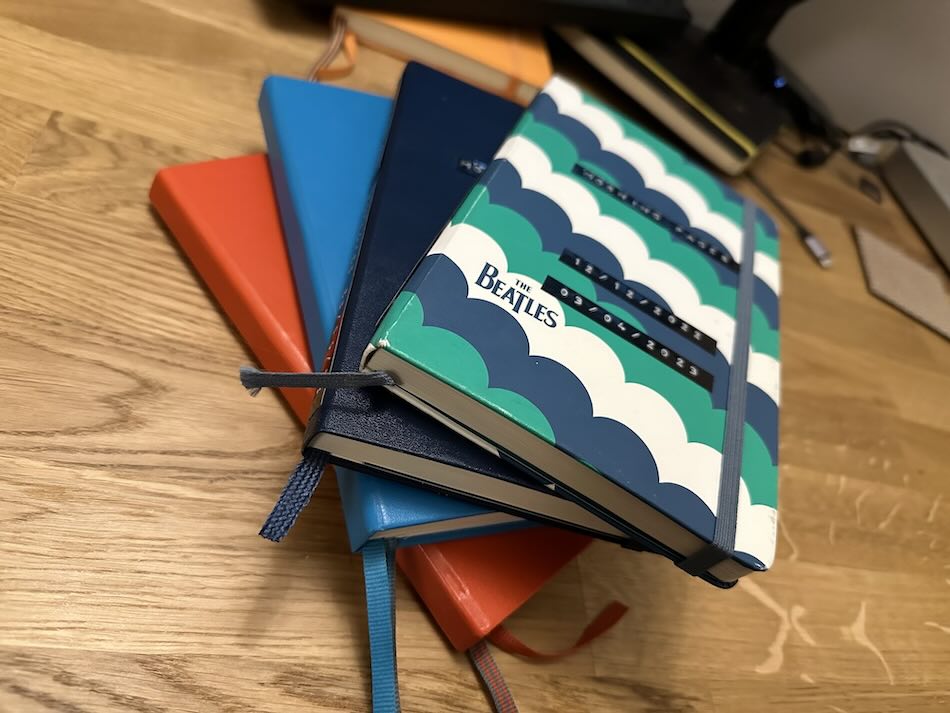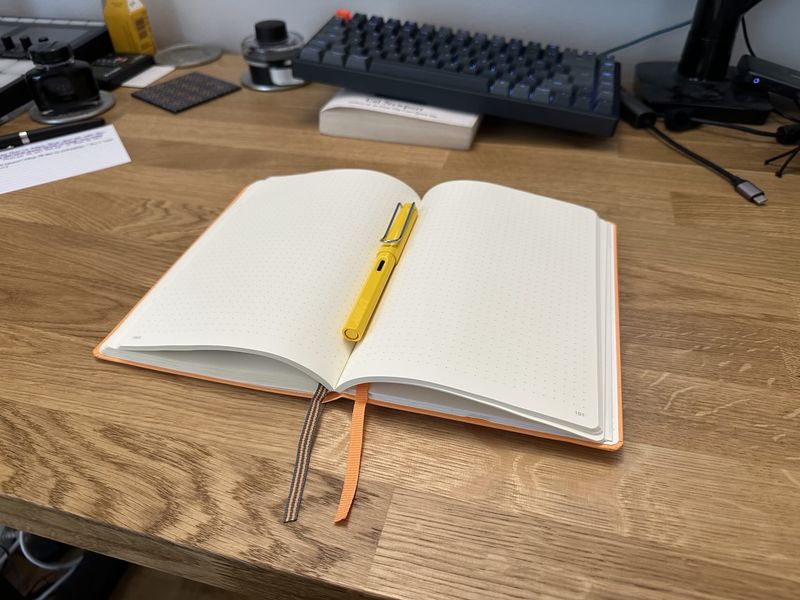I’ve always been stressed out by the blank page - whether I am making music, recording a video or writing for a project.
So much so that it’s completely paralysed me and stopped me from creating several times, sometimes over multiple months.
I’ve discovered a few things that have helped me get out of this creative block and I have been practicing them recently. I am writing this post to share what I have learned.
The Lone Genius Myth Is Just a Myth

Over the past few days, I have been going through a book I read a while back: “Deep Work” by Cal Newport.
I’ve highlighted quotes that spoke to me and marked the pages, and now I am going through them and putting them on 6x4" notecards, sometimes editing and summarising my thoughts on the way.
If you are interested by this “notecard system”, I stole it from Ryan Holiday (who I think stole it from someone else!).
I came across a quote that broke some fourth wall in my brain:
“Men of genius themselves were great only by bringing all their power to bear on the point on which they had decided to show their full measure.”
- Antonin-Dalmace Sertillanges, in “The Intellectual Life”
Basically, one of the greatest qualities of these “past geniuses” was their ability to focus on their one goal, and put in the time and work.
It’s not as much about talent as it is about how often you show up. How much effort you put in. Yes, for some people, it’s easy. But I can guarantee you that if I don’t pick up my pen, there is a 0% chance I will write.
This reminded me of another quote, this time from writer-who-draws Austin Kleon, in his book “Show Your Work!”:
“There are a lot of destructive myths about creativity, but one of the most dangerous is the ’lone genius’ myth:
An individual with superhuman talents appears out of nowhere at certain points in history, free of influences or precedent, with a direct connection to God or The Muse.
When inspiration comes, it strikes like a lightning bolt, a lightbulb switches on in his head, and then he spends the rest of his time toiling away in his studio, shaping this idea into a finished masterpiece that he releases into the world to great fanfare.”
He then carries on with depicting the idea of a “scenius”, a term used by musician Brian Eno to describe an “ecology of talent”, a creative scene:
“If you look back closely at history, many of the people who we think of as lone geniuses were actually part of ‘a whole scene of people who were supporting each other, looking at each other’s work, copying from each other, stealing ideas, and contributing ideas’
Scenius doesn’t take away from the achievements of those great individuals, it just acknowledges that good work isn’t created in a vacuum.”
This is one of the most difficult things I’ve encountered as a creative person: battling with the lone genius myth. It all comes down to comparing yourself with others. We all know we shouldn’t be doing that, but somehow we do anyway.
It completely changed my view of the world to realise that all these incredibly talended creative minds were not on their own. Suddenly, the weight on my shoulders seems a bit less heavy! I don’t have to come up with amazing stuff, locked down in a room :)
Lessons:
- Great artists from the past didn’t come up with things in a vacuum. Don’t beat yourself up, go out and talk to people!
- Great artists from the past weren’t waiting to be struck by genius ideas. They were spending a lot of time actually making stuff, learning, experimenting!
Don’t Worry About the Blank Page, Just Write. Then It’s Not Blank Anymore
Overthinking
In the past, whenever I dedicated some time to “creative projects”, I would take my notebook, and prompt myself: “What do I want to talk about today? What do I want to create? What’s my message?”
Do I need a topic to start creating? Historically, I’ve always thought that yes, in fact, I do.
But I am starting to wonder if this has been hidering me: thinking I have to conform to a mould, or evolve within certain parameters. Like writing about topic X, or making music of style Y.
Limitations are great for boosting your creativity. I am fully behind that idea. But maybe I am just looking at the wrong parameters. Maybe the parameters are not what I do or why or how. Maybe the parameters are when, how often, and with what.

Trusting My Process
I remember that woman who once asked me: “Why are you messing with your creative process?”
I was telling her about the fact I was trying to give myself themes, objectives, and limitations so I could iterate on some small projects more easily and get more music out there. My whole mindset was: If I have less decisions to make, I’ll have more space in my head for ideas and execution.
She called me out, basically saying “What if it’s not how your creative process works? Why are you doing this to yourself?”
That’s one of the best pieces of advice I have ever been given.
In the past few weeks, I have been experimenting with a new approach: I just open my notebook, pick up my fountain pen, and write. I don’t think very hard about what I want to say. I just start, and I trust the process.
And you know what?
It works!
Usually, something is on my mind. It’s not on the surface, but after a few minutes of writing, it becomes clear, and I start writing about that.
What surprises me the most is that I start without a path, and the path just reveals itself to me. Something interesting comes out of it, and quite easily, on top of that. I end up feeling excited!
Yes, the blank page is scary. Start writing, then it won’t be blank anymore. Don’t stop, just keep writing, keep talking to yourself. Someone will respond.
Lessons:
- Start now, figure it out later. If you think too hard, your mind will try to stop you.
- What works well for execution (like adding structure) doesn’t necessarily work well for drafting and idea dump (which might need less or no structure). That’s okay.
- Don’t stand in front of a blank page, waiting for lightning to strike, waiting for a good idea to come. Start writing.
- Talk about your creative process with others. Allow them to question it. Keep an open mind. Try something new.
Writing Every Day Means More Opportunities To Be Struck by Lightning
“Creative people organize their lives according to repetitive, disciplined routines. They think like artists but work like accountants.”
- David Brooks (in the New York Times)
A year ago, I started journaling every day. I have been following Julia Cameron’s method, which is basically writing 3 pages of “pure stream of consciousness”.

My notebooks, stacked
This created an interesting side effect: ideas have been popping up in my head about creative process stuff I want to talk about, so much so that I started recording them on Google Keep. I ended up building up a list of topics that could end up being blog posts, or videos, even.
It’s like the more I write, the more I expose myself to these random ideas that show up, unannounced.
And for the past year, I’ve been writing an awful lot! For the most part, I have journaled about what’s on my mind, how I feel, that sort of stuff. But out of it, I got a few blog post ideas I’m excited about.
And I was able to capture them because when they hit me, I was holding a pen in my hand. The more time I dedicate to writing, the more chances I got to be writing while an idea manifests itself. And the more I write, the more I trigger these brain circuits that lead me to be creative. It’s a virtuous circle. It’s like a muscle, it you keep flexing it, eventually it will get easier to use it.
This reminds me of one of Julia Cameron’s principles: we are a vector. We are just “a tool to the creative gods”. They feed us with the ideas and we are just holding the pen, so we better be holding it as often as possible!
Lessons:
- Don’t write only when you feel creative. Dedicate regular, long chuncks of time to writing. This gives more space for ideas to show up.
- Allow yourself to write bad stuff. It’s okay. I swear.
Conclusion
The creative block, also known as the blank page syndrome to some people, is probably one the major struggles of creative minds.
I’ve always thought it was because I was lacking ideas. It turns out that 90% of the time, in my case, it seems more related to feelings of anxiety and worries. I tend to overthink things, and I know that!
It’s okay to use tools and techniques, frameworks and limitations as a creative boost. If that’s your thing, then please, do it!
But also, remember to:
- Put yourself at your creative station regularly, with discipline, and just start, just do something, anything. You will figure out what it is later.
- Listen to yourself. If you don’t feel like doing something specific, maybe that’s fine. You don’t have deadlines (hopefully). Just create about something else.
Give yourself permission to create. Or do nothing. Like Neil Gaiman said.
